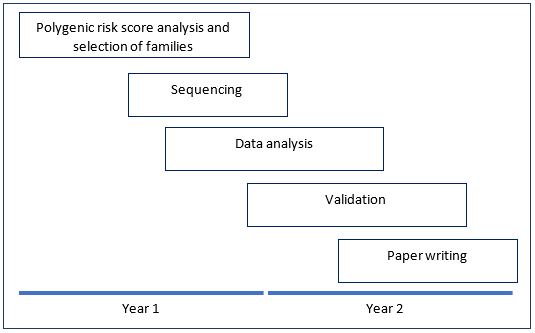ECCO Grant Study Synopsis: Ho-Su Lee
Ho-Su Lee, ECCO Grant Awardee
Familial aggregation in Inflammatory Bowel Disease: a next-generation sequencing study
 Ho-Su Lee Ho-Su Lee© Ho-Su Lee |
Aim of research
Family history of Inflammatory Bowel Disease (IBD) is the strongest risk factor for IBD. Currently, however, there is incomplete understanding of the contribution of genetic risk to familial aggregation of IBD. We aim to identify the genetic basis of familial aggregation in multiple-affected IBD families and to identify shared genetic susceptibility variants between IBD and other diseases using families suffering from IBD and concomitant diseases.
Methodology/experiments that will be used
Families will be prioritised for sequencing based on their polygenic IBD risk (genetic burden). We will perform next-generation sequencing of four to five multiple-affected IBD families with the lowest polygenic risk. Found
variants and genes will be validated in sporadic IBD in Caucasian (Leuven, IIBDGC) and Korean datasets. To examine pleiotropy (when one gene/variant can affect multiple traits), the medical history of these families will be reviewed. Shared and specific genetic effects between IBD and other medical conditions will be further examined.
Anticipated main impact
The results of this study will further our understanding of IBD genetics and pathogenesis:
- In the short term, we will identify the disease-causing variants in specific families. These findings will not only shed light on mechanisms of disease that can likely extend beyond the particular family; most importantly they will also have high significance for the family under study. If the cause of disease is found, this will also allow pointers for therapeutic targets and, depending on the exact cause(s), allow genetic risk counselling in these families.
In the medium-to-long term, the results of this project will be important for clinical implementation, with the development of a prioritisation pipeline to target specific multiple-affected families for next-generation sequencing approaches.
Proposed timeline
A schematic overview of the foreseen timeline is given in the Figure.
